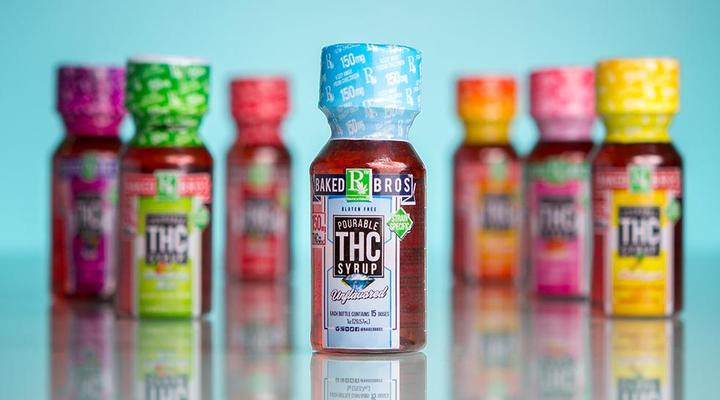27 NOV, 2017
EDIBLES MARKET DEMANDS CONSISTENCY IN TASTE AND DOSE AND REQUIRES RIGOROUS TESTING.
By Brad Weissberg/Nov. 19, 2017
REPORTING FROM LAS VEGAS— Attention to detail, testing your tester and the popularity of microdosing were the takeaways at a panel on ensuring consistency in infused products held at the MJ Biz Conference held in Las Vegas, Nov. 16.
“Infused edibles are growing as a product category at an impressive rate,” said panel moderator Julie Berliner, founder and CEO, Sweet Grass Kitchen. “Operating a cannabis kitchen-based business requires consistency; making your process uniform is the only way to succeed.”
“Attention to detail is job number one,” said Nadeem Al-Hasan, co-founder, Baked Bros. “We focus on individual products and dosing. We’re adamant about this message. We don’t want people to overdo and overmedicate and have a bad experience and never come back to edibles.”
Mindy Segal, chef and consultant, Mindy’s Edibles by Cresco Labs, started out as a chef. “Coming from a chef background I was interested in making products that had great taste first and foremost. Adding a hyperactive component for me comes after.”
MICRODOSING
“We have a lot of customers who are just coming to cannabis and looking to microdose,”said Segal. “They don’t want a lot of the hyperactive effects.”
“It took us a long time to come up with small dose, safe products,” said Berliner. “It was a challenge. The recreational market doesn’t want to be overwhelmed.”
“Microdosing allows for a consumer to spread out their intake,” said Al-Hasan. “Rather than taking a 25mg dose and feeling the effects come on strong and heavy a consumer can take 5mg doses in a sequence over an hour.”
The panel agreed that microdosing was the trend in infused products. “Microdosing is the new frontier,” said Al-Hasan. “The companies that figure out how to get it right will prevail.”
TEST THE TESTER
“Al-Hasan suggested “testing the tester” by sending purposely manipulated product to different labs to see what they come up with.”
Testing your products, a requirement in many states, is probably the biggest headache for the edible producers. “Your relationship with a lab is critical,” said Christine Smith, founder and CEO, Gron Chocolate, who processed over 1000 chocolate bars last year. “The testing is not the same in every lab. This makes it really difficult to gauge your levels and meet compliance.”
Smith’s state, Oregon, only allows 50mg per serving. “If your test comes back at 50.2mg the batch has to get tossed,” she said.
Al-Hasan suggested “testing the tester” by sending purposely manipulated product to different labs to see what they come up with. “There are four different testing facilities in Arizona. We overcooked edibles, overheated carbonated oils, and manipulated the products to see what the labs would come back to us with. Some of the labs sent us back reports showing what they thought we’d want to see. We don’t have a relationship with those labs.”
He also advised testing all components of the cook. “Test the flower, the oil, and then the product.”
Smith tests her active ingredients twice before using it in her product. “By the time the chocolate comes out we’ve nailed it and know exactly what it’s going to be,” she said.
Berliner said finding a tester who met her standards was challenging. “It took me years to find a lab was comfortable with,” she said. Berliner also said that finding a strain that is consistent was the key to finally nailing down a testing partner.
“If someone eats an edible today and then again in five months it should be consistent in taste, dose and experience,” she said.
GOOD KITCHEN PRACTICES
Al-Hasan is a follower of the small batch rule. “When you increase the size of the batch there’s more room for error,” said Al-Hasan.
Hiring a food scientist is good business, suggested Segal. “Your relationship with the person who handles the dosing is the key to making sure the product comes out the same every time. It’s essential.”
Segal, who owns a restaurant, also stressed the importance of treating your cooking facility like any standard licensed kitchen.
“Pay attention to detail,” said Al-Hasan. “Check your process.”
“You want the same experience over and over again,” said Smith. “Consistency is important. Know who you are working with if you are buying your distillate or oil. Find an outfit that’s transparent.”
TO TASTE THE TERPENES OR NOT?
The panel varied on whether the consumer wants a product that tastes like cannabis. Smith works to make a product that “has zero cannabis flavor and tastes like chocolate” and removes all terpenes from her product; Al-Hasan said many of his customers, “want to taste the terpenes.”
It was suggested that opposing positions stemmed from Al-Hasan’s state, Arizona, being a medical-only system while Smith is from adult-use state Oregon. “The recreational market is a completely different market than the medical one,” said Smith. “There are people who have never had a cannabis product and would be put off by a product that had a heavy terpene taste.”
“Pay attention to your market,” said Al-Hasan.
